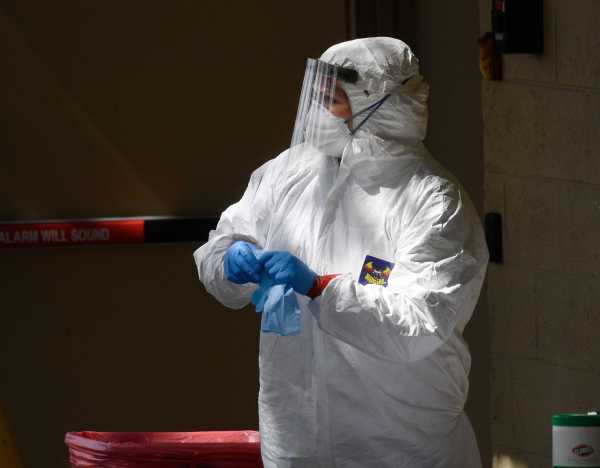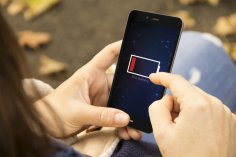
The Food and Drug Administration has approved a molecular test that can diagnose novel coronavirus infections within a matter of minutes.
The test, created by Abbott Laboratories, is highly portable and can be used in a wide variety of settings, from hospital emergency rooms to urgent care clinics to physicians’ offices. The company says it expects to start shipping the kit out to health care providers next week, and that it will be able to deliver 50,000 tests a day by April 1.
Abbott’s coronavirus test will be run on its “ID NOW” platform, which is already used for rapidly diagnosing patients who are sick with things like influenza and strep throat. The test looks for fragments of the coronavirus genome in samples picked up through a throat or nose swab. It can deliver positive results in as little as five minutes, and negative results within 13 minutes. It’s about the size of a toaster, and weighs less than 7 pounds.
“With rapid testing on ID NOW, healthcare providers can perform molecular point-of-care testing outside the traditional four walls of a hospital in outbreak hotspots,” said Abbott president and COO Robert Ford.
If distributed effectively, the test could help expand national testing capacity, better allowing public health experts to understand which populations are most at risk of infection, and helping state and federal officials better plan response strategies.
Such a test would also dramatically reduce testing backlog — currently, many Americans who are able to access testing face long wait times. In fact, test results can take over a week, a delay that endangers particularly high-risk individuals. For these reasons, Eric Feigl-Ding, an epidemiologist and health economist at the Harvard T. H. Chan School of Public Health, called the new test a “game changer” in dealing with the outbreak. “The Abbot Lab test will give fast point of care immediately, and hopefully more accurately than old test,” he tweeted on Friday.
Faster test results will help public health experts, lawmakers, and everyone else
The Abbott test also has the potential to play a significant role in accelerating the speed at which health care providers make crucial decisions about identifying and isolating people infected with coronavirus.
“This is really going to provide a tremendous opportunity for front-line caregivers, those having to diagnose a lot of infections, to close the gap with our testing,” John Frels, vice president of research and development at Abbott Diagnostics, told Bloomberg News. “A clinic will be able to turn that result around quickly, while the patient is waiting.”
Currently, the wait time is much longer than the Abbott test allows for. Quest Diagnostics and LabCorp, two major private companies, say that on average they deliver results in four to five days. Many reports suggest it can take a week or more to get test results back.
That waiting time poses a particularly serious problem for high-risk patients who may need to stop treatment for other health problems to isolate. For example, a cancer patient in Ohio reported waiting over a week to get results back on a coronavirus test — and his doctors were forced to pause his cancer care while waiting for those results.
Shortening wait times for tests is also a crucial tool for policymakers and public health officials — quicker diagnoses should help the government and health care system have a more accurate assessment of how many cases are actually popping up in real time — and assist them in understanding whether measures to prevent Covid-19’s spread are working.
Testing in the US is well behind the country’s international peers. In the past week, the number of coronavirus tests conducted in the US surpassed the number of tests done in Italy and South Korea — two countries that dealt with serious outbreaks and have been testing aggressively for the virus. But according to the New York Times, the US still lags behind both countries in terms of tests per capita: While South Korea has conducted about 700 tests per 100,000 people, and Italy about 600 tests per 100,000 people, the US has done fewer than 200 tests per 100,000 people.
Even with that low rate of testing, the US has more confirmed cases of coronavirus than any other country in the world, a fact some experts believe means the country has a number of unconfirmed cases that faster testing could help reveal.
According to the Times report, published Thursday, about 65,000 coronavirus tests are being performed a day in the US, but experts say that 150,000 tests are needed a day to identify and separate infected patients quickly — and Abbott’s test would go a long way toward helping the US reach that number.
Sourse: vox.com






